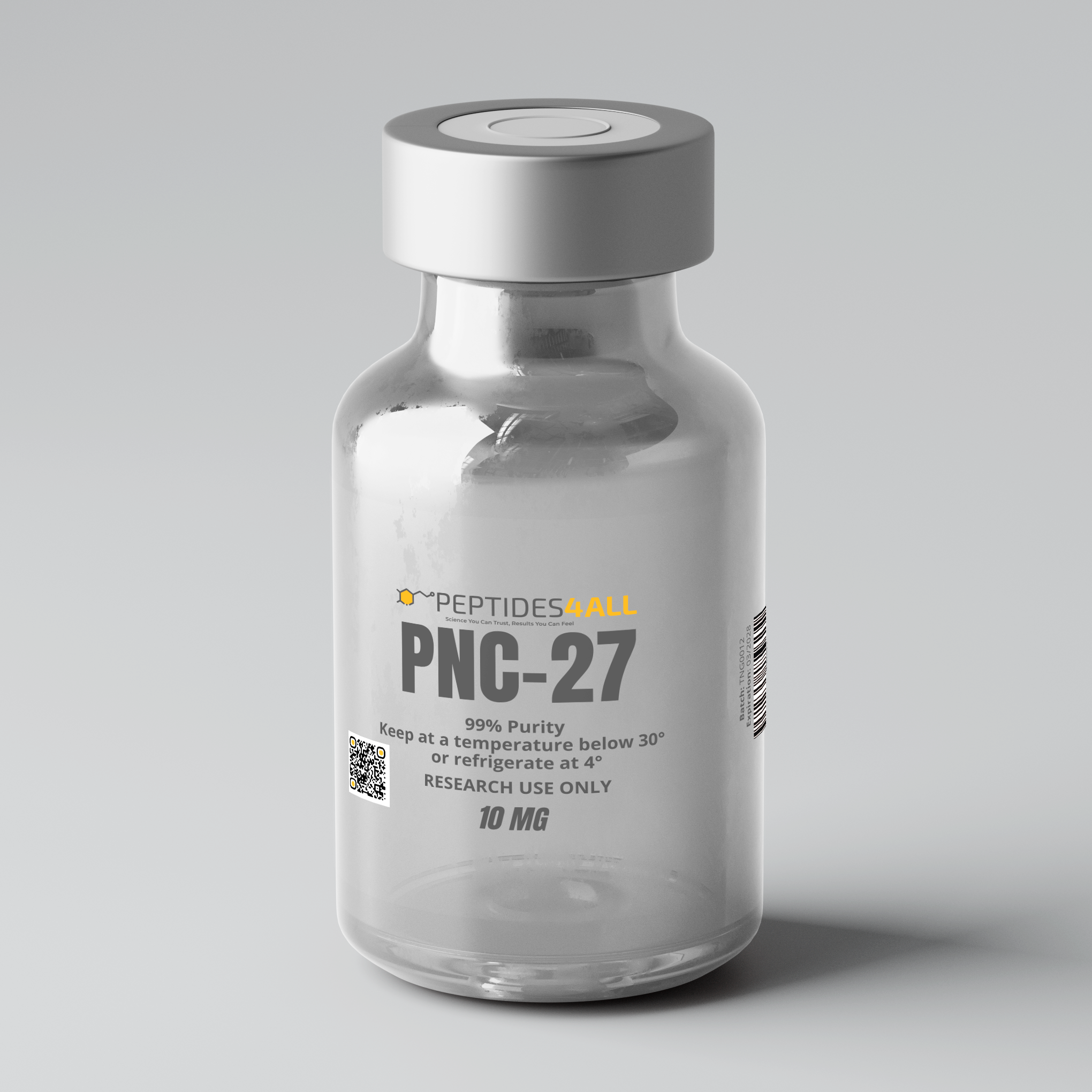Sequence: Pro-Pro-Leu-Ser-Q-E-T-F-S-D-L-W-K-L-L-P + Transmembrane Domain
Format: HDM-2 Binding Peptide
Chemical Description
PNC-27 is a synthetic fusion peptide designed for research into membrane-protein interactions. Structurally, it combines the HDM-2 binding domain of the p53 protein (residues 12-26) with a membrane-residency sequence (MRP). This unique amphipathic structure allows the peptide to bind specifically to HDM-2 proteins located on the plasma membrane of transformed cells. Biochemically, this binding event induces a conformational change that facilitates peptide insertion into the lipid bilayer, leading to the study of pore formation and membrane destabilization kinetics in vitro.
Research Applications
This compound is strictly for laboratory research use in the study of:
- Membrane Permeability Assays: Investigation of LDH release and transmembrane potential changes in cells expressing high levels of membrane-bound HDM-2.
- Necrosis Kinetics: In vitro analysis of caspase-independent cell lysis mechanisms and rapid membrane disruption.
- Protein-Protein Interaction: Research into the binding affinity between p53-derived peptides and the HDM-2 hydrophobic pocket.
Technical Specifications
- Molecular Formula: C188H293N53O44S
- Molecular Weight: 4031.8 g/mol
- Purity: >99% (determined by HPLC)
- Appearance: Lyophilized White Powder
Presentation & Handling
- Form: Supplied as lyophilized peptide in sterile vial.
- Reconstitution: Use bacteriostatic water or 2% procaine; swirl gently (do not shake vigorously).
- Storage: Store at –20 °C, protected from light and moisture. After reconstitution, use according to research protocols and handle under sterile conditions.
Disclaimer: For Research Purposes Only
This content is provided strictly for laboratory research purposes and does not constitute an endorsement or recommendation for any non-laboratory application. The information provided regarding specific peptides is for educational and informational purposes only and must not be construed as medical, clinical, or legal guidance, nor as an encouragement for use in humans or animals.
Peptides described here are solely for use in structured scientific study by qualified researchers. We advise consulting with laboratory safety officers or research experts prior to handling these materials. The expectation of responsible, ethical utilization of this information for legitimate investigative and scholarly objectives is paramount. This notice governs all content on this site.
